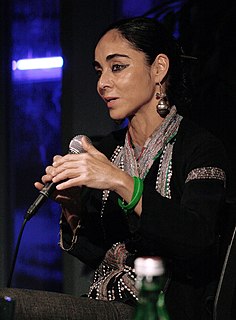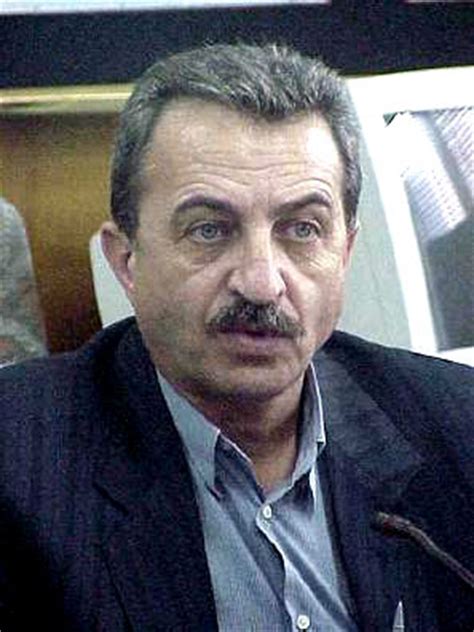A Quote by Said Sayrafiezadeh
My sister married an American and took his name, and my brother has shortened Sayrafiezadeh to Sayraf. So now he's Jacob Sayraf, or sometimes Jake Sayraf. He made the change when he was a teenager, prior to the Iranian revolution and the hostage crisis. So I don't think it was motivated by any anti-Iranian sentiment in the United States.
Related Quotes
In the United States, Iran is nothing but a whipping-boy. Few Americans have any real use for Iran. Most of us, what we know and remember about Iran are things like the hostage crisis in 1980, or they think about the Iranian attacks in Lebanon, or on the Khobar Towers. So you don't get a whole lot of political mileage in the United States by going out and advocating better relations with the Iranians.
In many ways I'm similar to Barack Obama, who also has a strange name but was raised by a white American mother. His background is far more complicated than his name would suggest. Furthermore, the fact that I was a child during the hostage crisis has caused me to equate being Iranian with being alienated.
Our support for the Shah, the CIA coup in 1953 - has become infused into the Iranian political discourse. The regime that came to power in 1979 during the Iranian revolution actually defined itself as anti-American, and that's now a critical ingredient in the Iranian domestic political debate. That really is the source of our problems - the regime in Tehran continues to see itself as opposing the US. In their eyes, everything the US does is directed at them in a very malevolent way, and therefore they have to fight back against it.
When our sailors in the Persian Gulf accidentally strayed into Iranian waters, that could have sparked a major international incident. Some folks here in Washington rushed to declare that it was the start of another hostage crisis. Instead, we worked directly with the Iranian government and secured the release of our sailors in less than 24 hours.
I have traveled many times outside Iran, and have discussed the issue [of the Iranian nuclear project]. I have been asked for my opinion and that of the Iranian Jewish community, and I have always emphasized that the Iranian people has the right to obtain nuclear technology and energy for peaceful purposes. The Iranian people must not give up this right under any circumstances - and indeed, it will not.
We often forget that Iran has a long tradition and history with the United States. Iranians have been coming to the United States as students for decades. American businessmen were in Iran developing the oil fields. ...There was an American financial advisor to the Iranian government in the early part of the century.
Outside events can change a presidential campaign, a president, and the history of the nation: the Iranian hostage crisis, the bombing of the Marine barracks in Beirut, the downing of the helicopter in Mogadishu, Somalia, the suicide attack on the USS Cole, and, of course, the terrorist attacks of Sept. 11, 2001.
Since leaving office in 1977, Dr. Kissinger has continued to play a highly influential role in U.S. politics, in the U.S. media, and in the Rockefeller world empire. It was Kissinger, along with David Rockefeller, who was decisive in the disastrous decision of President Carter to admit the recently toppled Shah of Iran, old friend and ally of the Rockefellers into the United States, a decision that led directly to the Iranian hostage crisis and to Carter's downfall.




































